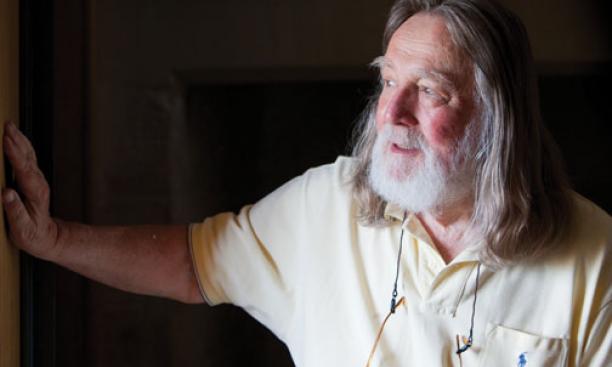

Stanley J. Seeger ’52 *56 first traveled to Greece after he received his master’s degree in fine arts. Enamored with the country, he lived there in the 1960s and became a citizen.
Seeger, who died last summer, continues his connection with Greece through the Stanley J. Seeger ’52 Center for Hellenic Studies at Princeton, established last year. Seeger contributed $2 million in 1979, which created the Program in Hellenic Studies two years later, and he made additional gifts over the following three decades.
Center director Dimitri Gondicas ’78, a lecturer in classics and Hellenic studies, said the establishment of the center was necessary to support Princeton’s fast-growing program. “We felt that the scope, the sheer magnitude, and the complexity of what Hellenic studies had become after 30 years was much bigger than what programs normally offer within universities of the size and type of Princeton,” said Gondicas. “The center is one of the windows of the University to the outside world and a connector to Greece and the Hellenic Mediterranean, as well as to institutions outside of Princeton.”
About 200 undergraduate and graduate students take courses each year and more than 100 Princetonians participate in international travel and research as part of the program. The center will support new faculty positions and expanded curriculum and travel opportunities.
The center plans to build on the academic program by expanding research opportunities and furthering the relationship between Princeton and the Hellenic world. It will introduce new postdoctoral and visiting research-fellowship programs, library and art collections, publications, and international partnerships with Greece.
Princeton’s relationship with the Hellenic world has a long history. The first two international students to receive scholarships from the College of New Jersey in 1840 were Greek citizens, and until 1917, all undergraduates were required to study ancient Greek. Today, the University continues to be a leader in Hellenic studies.
“I know of no university outside Greece itself that has brought together so much talent, so many scholarly resources, and so many opportunities for cultural and intellectual exchange between Americans and Greeks as Princeton,” President Tilghman said.
Seeger, who became a renowned art collector, was to be honored during a ceremony at the annual meeting of the program’s trustees April 20.
“When Stanley made his gift [in 1979] ... he was decades ahead of his time,” Gondicas said. “Now we’re thinking about the arts and internationalization [at Princeton and in Hellenic studies], but when we started that was unknown territory.”
